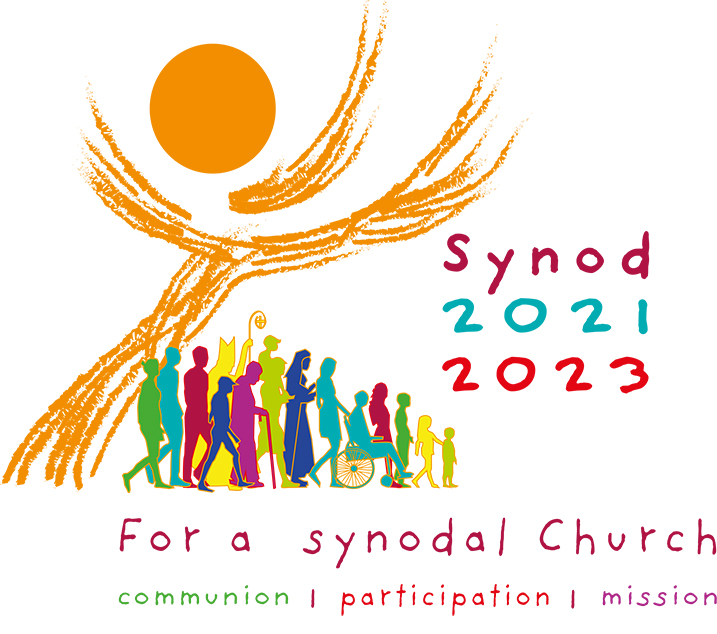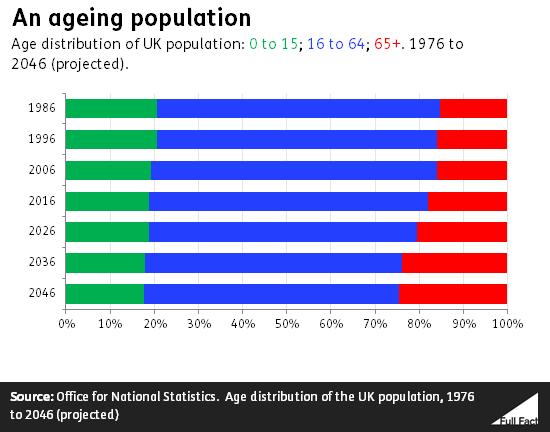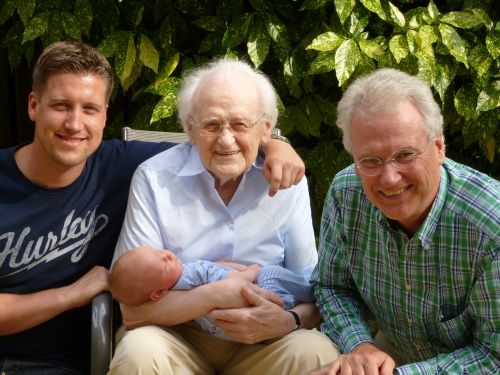
As well as being involved in each of our parishes, the trustees of Growing Old Grace-fully wanted to highlight the voice and needs of older people in this listening process.
A group of the board members got together and drew up a response on the relevant topics in the framework, this is what we submitted:
Growing Old Grace-fully – response to the Synod listening exercise in the Diocese of Leeds
Growing Old Grace-fully is an independent charity based in the Diocese of Leeds and have been working in the diocese for over 10 years.
Our aim is to:
To enhance the spiritual, emotional, and physical wellbeing of older people across the Catholic Diocese of Leeds through raising awareness, inspiring and supporting responsive action in parishes.
We are making a separate submission based on our substantial experience of listening to older people in our parishes.
Introduction:
The term ‘older people’ covers a very wide age range and several life stages: in our society, younger older people (60+) may enjoy (depending on their life chances) 20 years or so of active life with good health, when they will volunteer in their community including the parish, provide childcare for grandchildren and may be supporting older relatives and friends, at the same time. For many, this will be followed by a period of declining health when support from family or agencies is needed before death.

Longer life is a great blessing for individuals and families and for wider society but the later stages of life present challenges to the individual, to those who love them and to wider society, as health declines and the need for support and care increases. Life expectancy is increasing in most countries in the world and different issues arise depending on the relative proportions in the population of younger and older people.
Longer life expectancy – a sign of our time – needs to be pondered to discern what God is saying to us and how we should respond. A theme of Growing Old Grace-fully’s work is the vocation of later life: ‘Called to be Old’.
(Another feature of our time is the decrease in the number of priests and religious in the local church, many of whom are themselves older people. How can we ensure that they continue to be included, supported and able to contribute their wisdom and experience?)
Who are our journey companions and who is marginalised?
Older people often have a wide network of friends in the parish whom they have known over many years and take for granted that these people are their companions in life and in faith. There may not be explicit faith sharing unless people belong to a group which prays, reflects and acts together but there is an implicit bond.

As friends die and perhaps the composition of the parish changes, older people are likely to feel more isolated. If they become housebound, they are likely to lack companions on their faith journey especially if their family members have lost connection with Church.
If people go into a care home, they may become completely cut off from their worshipping community and from the support of the sacraments.
We need (formal and informal) ways to follow up people who ‘disappear’ to find out if they wish to stay in touch with the parish and what support they would like. Quaker meetings appoint members to roles of responsibility – overseers – for a given term: 2 periods of 3 years. Their ‘task is building a community in which all members find acceptance, loving care and opportunities for service.’ Other denominations have ‘pastoral stewards’ and of course often in parishes the SVP can play this role.
We have developed a specific model to formally ensure a more systematic approach to ensuring that our older people are still included in parish life.
A Lay Chaplaincy for Older People in parishes and/or deaneries would fulfill this role. The chaplain will be there to provide a listening presence, companionship, and one-to-one pastoral support for older people in a parish. Their person-centred approach will help them deliver support with warmth, compassion, humour, mutual respect, strength, and hope, aiming to inspire and provide stimulation. More specifically, working closely with relevant parish groups such as the SVP and supported by the Parish Priest, the Lay Chaplain’s role will be to help get to know older people in the parish and particularly those who have mobility issues or other conditions that make them at risk of being isolated. The Chaplain will be the first port of call for ministering to older people in the parish, particularly at times when sustained spiritual support is most needed. They will be able to inform the priest when and if sacramental care is needed. If appropriate and possible, the Chaplain will aim to build a group of volunteers to help to support the work. (we have a small amount of funding to pilot this model).
NOTE: Read more about this model HERE
Listening and speaking out, how might the RC church listen to lay people, women and minorities and those who are not respected?
This question is framed in a way that reveals an underlying assumption that lay folk are not ‘church’. We believe that ‘we’ are the Church.
Housebound older people and those in care homes are a marginalised group without a voice. Older people have expressed concern that church concentrates on young people and ignores the needs of older members.

In 2018 we asked some of our supporters about their experience of parish life, this reinforced our concern that there is too much reliance on informal connections and that older and other vulnerable people slip through the net and become marginalised.
They also said that church stands out as a place where generations mix at Mass, but there’s less evidence of more structured opportunities for support/learning.
Programmes addressing the spirituality of ageing or taking ageing seriously are not available.
There are not enough structured programmes to help support people in bereavement, or anything specific that helps people cope with the varied losses that can come with long life.
Listening and speaking out are interdependent: people speak out when they are listened to; otherwise they won’t bother. Intergenerational structures are needed through which people can express their needs, share their insights, listen to the experience of others, and discern how they can contribute and work together for the common good of church and world. (see later response)
Older people have a wisdom, experience and skills that they can share, whether developed from their working life or through being part of the parish community. We hope that their experience of listening, dialogue, creating and celebrating liturgies, experiencing lay leadership and years of co-responsibility in different ways in their parishes and dioceses, and navigating change in the past will be valued as we journey through the synod process.
Celebrating
The closure of churches in the early part of the pandemic opened opportunities for us to experience liturgies celebrated across the world as well as locally, provided that we are digitally enabled. Some older people who have participated in on-line liturgies would like them to continue; this would be a boon for housebound people as well as those who still do not feel confident about returning to a crowded church.
However, we recognise that most people want to be part of a community that is physically present to each other, for the social interaction as well as celebrating Mass together.
We also need to be aware that some older people are not digitally confident and may feel excluded by too much reliance on online participation
(Some) Older people have also expressed a wish for occasional community celebrations of the Sacrament of the Sick and Reconciliation.
Co-responsibility in mission
The experience of Growing Old Gracefully is that as well as those older people who need additional support, many older people are active in their parishes, taking on a range of tasks and running parish groups. They and others may also be active in and/or leading local action: supporting asylum seekers and refugees, homeless people, food banks, isolated older people, looking after vulnerable neighbours, contributing their time, energy and skills (and money) to charities caring for the vulnerable and to campaigns for justice such as development in the global South, combating the climate crisis and many other good causes. They may see these actions as being part of being good citizens; they may know that their involvement springs from their faith and love of neighbour and is part of the Church’s mission. This involvement needs to be recognised and affirmed.
Dialogue between the generations
Pope Francis’ message for World Peace Day 2022, outlined three paths for building lasting peace. One was the “dialogue between generations as the basis for the realisation of shared projects.”

He noted dialogue demands trust between people who need to listen to one another, share different views, reach agreement and walk together. This he says is especially important between generations: “between the keepers of memory – the elderly – and those who move history forward – the young.”
The Pope’s words can apply to international, national and local groups. Within dioceses and parishes who are rebuilding activity after periods of Covid lockdown, different generations are working and praying together, listening to each other and moving forward together. Inter-generational working is key for our religious organisations and churches as we journey through Covid, towards the Synod and beyond.
Some examples of intergenerational dialogue include
- the older person mentoring younger people in ways of serving their parish. The list can be endless but includes parish ministries, liturgy, prayer groups, and other parish groups and activities. Many older people have experience of lay leadership and co-responsibility with the clergy and are often willing to encourage others to gain confidence and experience as “they pass on the baton.”.
- One older parishioner has become friendly with a mother who has spirited young children. She affirms the mother, sits with the family at Mass and helps the mother take them up for a Blessing at Communion. She also lights up the room at parish coffee time. This example will be replicated elsewhere.
- Some older people are prayer sponsors, take an interest in younger people and model strength, determination, and humour.
- Other older parishioners accept help from younger people, accept lifts home and older people also offer lifts to those younger than themselves! At a parish exhibition of photos and reminiscences from past wars older people participated with reminiscences from previous generations about war experiences and helped younger people to hear about the effects of war on local people.
This contribution is based on our work of listening and responding as older people with other older people in the diocese over the last 10 years and we hope that it highlights the gifts that older people bring to the Church and to the needs of the most marginalised.
